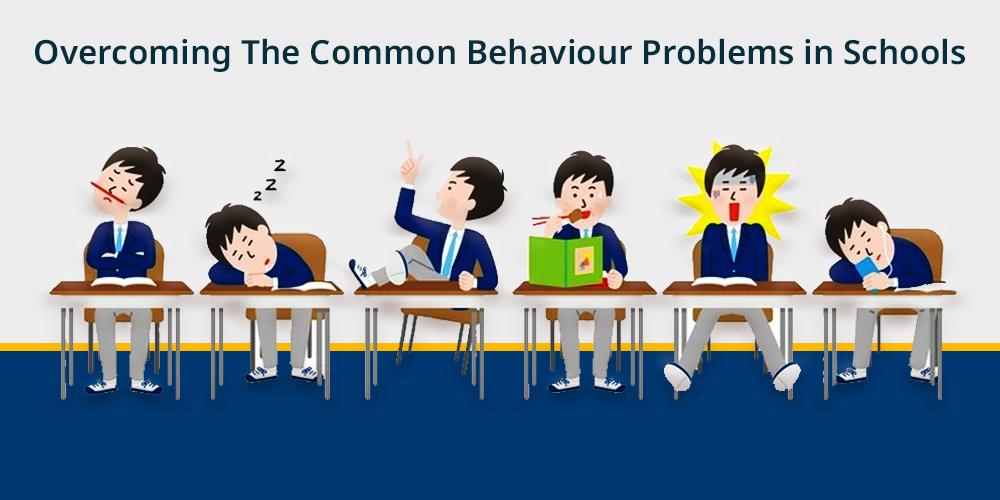
Have you ever wondered why some students behave oddly in schools?
Behaviour problems in schools are one of the major reasons that make it challenging for teachers and schools to manage their classes effectively.
Behavioural problems are the attitudes and odd acts of students that create chaos in the classroom discipline and hamper the teaching and learning methods.
Behaviour problems in schools not only cause challenges for teachers but also make it difficult for students to socialise with others. These cause them to develop aggression and behavioural disorders, which makes it tough for them to learn effectively.
Behavioural problems occur due to various issues such as disorders, emotional factors, social factors, learning disabilities, parental conflicts, health issues, and so on.
Contents
What are Behavioural Problems?
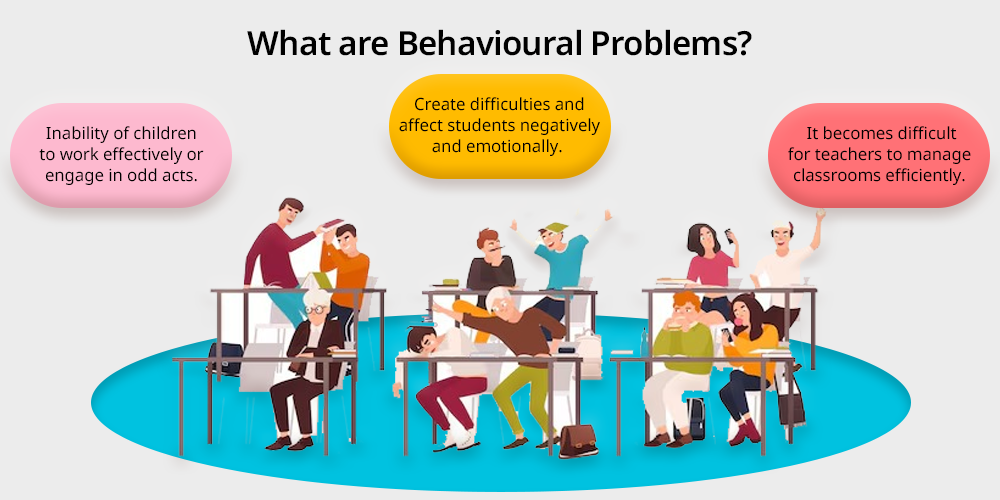
Behavioural problems are the inability of children to work effectively or engage in odd acts. Behaviour problems in kids create difficulties and affect students negatively and emotionally.
Due to odd behaviours of students, it becomes difficult for teachers to manage classrooms efficiently. Sometimes these issues may cause students to develop disorders or stress.
Is your child suffering from study stress? Help them with how students can cope with study stress effectively.
They develop disorders such as Attention Deficit Hyperactivity Disorder (ADHD), Conduct Disorder (CD) and Oppositional Defiant Disorder (ODD).
Proper management of children’s behaviour helps in overcoming behavioural challenges and develops habits of mind.
Guidance from teachers, a collaborative environment, Indulgent parenting, treatments, therapy, etc., helps in managing behavioural problems in schools.
Prominent Classroom Behaviour Problems in Schools
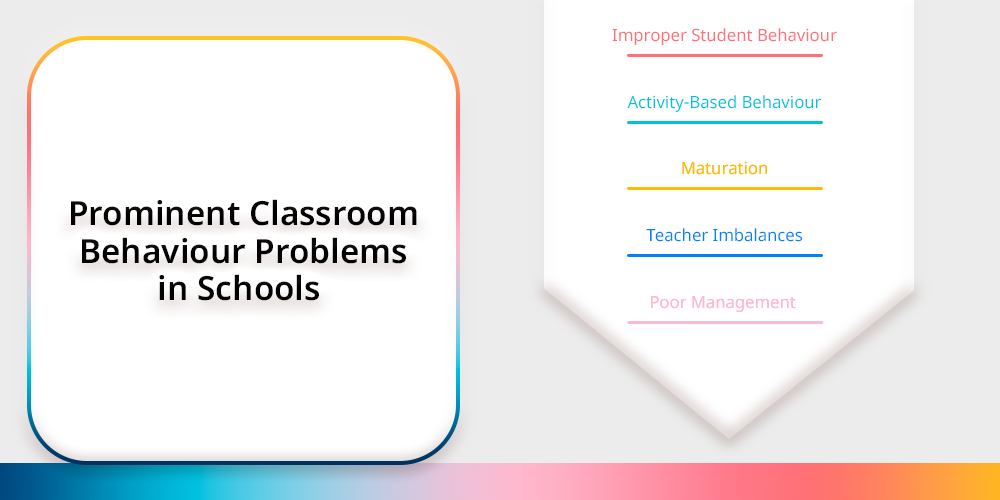
A wide range of behavioural problems in schools are caused due to improper and odd activities of students.
Behaviour problems arise due to a wide range of problems such as daydreaming, physical challenges, depression, anxiety, etc.
To overcome this problem, it is essential for educators, parents and school authorities to understand the child’s behaviour and create possible solutions for the scenarios.
Below, you can check the common behavioural problems in schools.
1. Improper Student Behaviour:
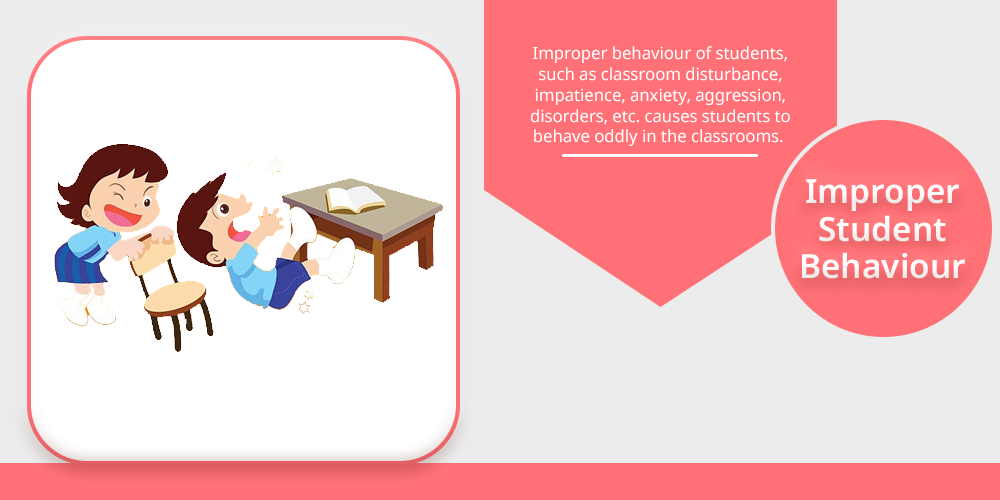
Improper behaviour of students, such as classroom disturbance, impatience, anxiety, aggression, disorders, etc. causes students to behave oddly in the classrooms.
Sometimes children need attention from teachers and peers, which makes them create a nuisance in the classroom. This calls for strict measures to ensure classroom discipline.
2. Activity-Based Behaviour:
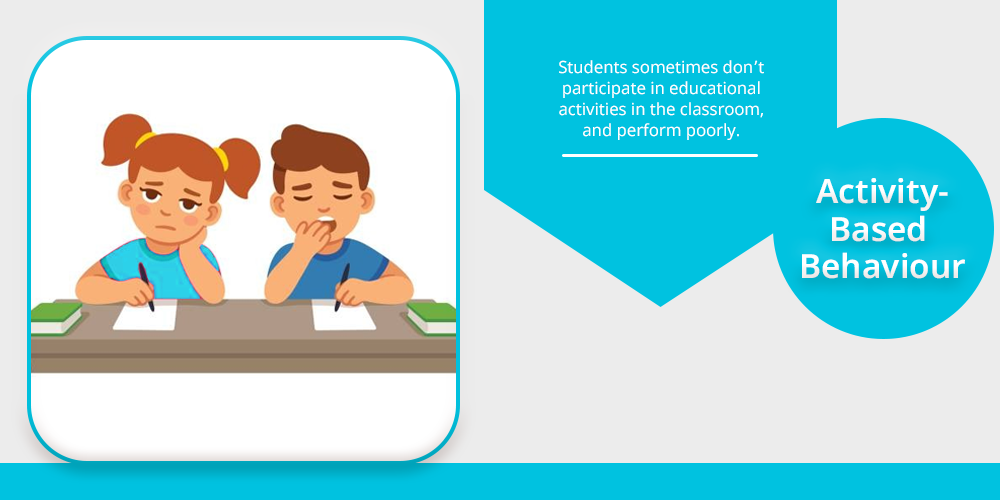
Students sometimes don’t participate in educational activities in the classroom, and perform poorly.
Sometimes children learn behaviours from others such as friends, families, teachers, etc., which causes students to act like them.
Know more on the fun and engaging educational activities for your kids to promote activity-based behaviour.
3. Maturation:
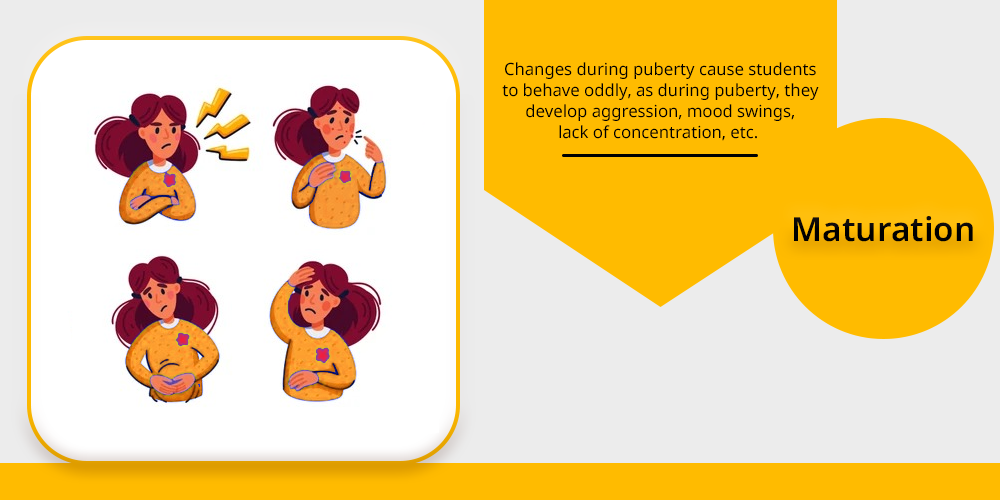
Maturation is one of the common behavioural problems in students. During school years, children grow at a fast pace and move towards adolescence, which makes them undergo many changes in their bodies.
Changes during puberty cause students to behave oddly, as during puberty, they develop aggression, mood swings, lack of concentration, etc.
4. Teacher Imbalances:

Some students don’t like the way teachers teach them, or they find it difficult to adjust to their class teachers.
In such scenarios, students make fun of their teachers and behave badly. Due to this reason, students become resentful of teachers who are sarcastic or treat them unfairly.
5. Poor Management:
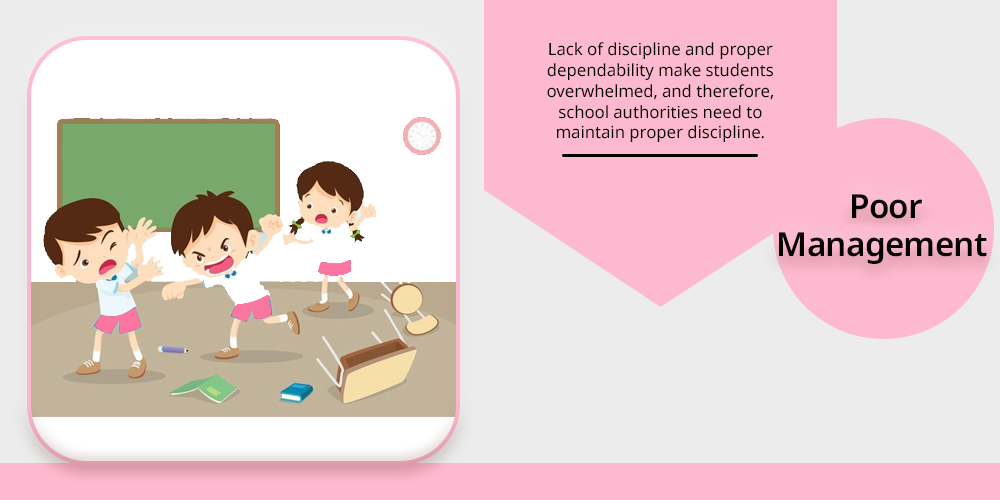
Poor management of school authorities sometimes causes children to behave socially awake. A proper positive learning environment is essential to provide students with equal learning opportunities.
Lack of discipline and proper dependability make students overwhelmed, and therefore, school authorities need to maintain proper discipline.
Causes of Behaviour Problems in Schools
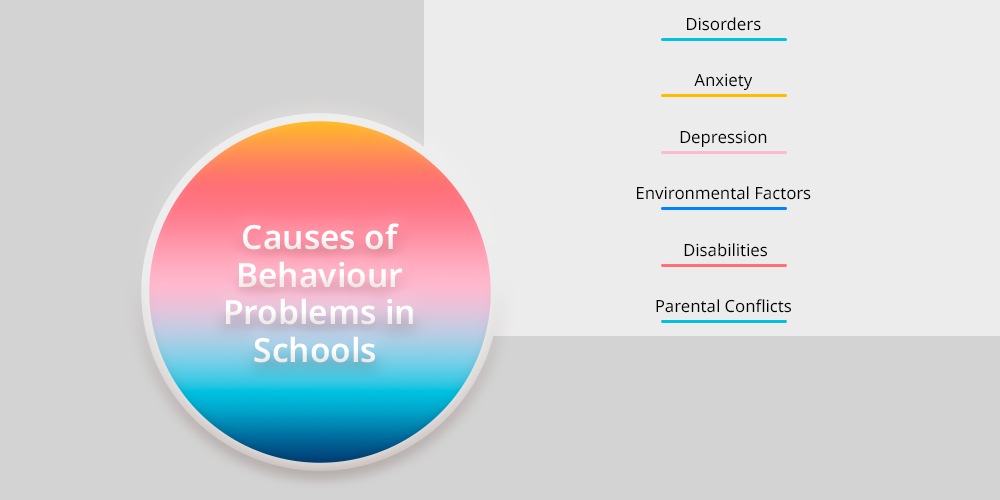
Behaviour problems in schools are caused by a variety of issues that create hindrances in active learning. Behavioural problems of childrens make it difficult for teachers and peers to collaborate effectively.
Factors such as disorders, neurological factors, emotional factors, depression, parental conflicts and so on cause children to behave oddly.
It is essential for teachers to effectively promote dynamic education and create a collaborative learning environment to overcome these problems.
Here, you can check the causes of behaviour problems in schools.
1. Disorders:
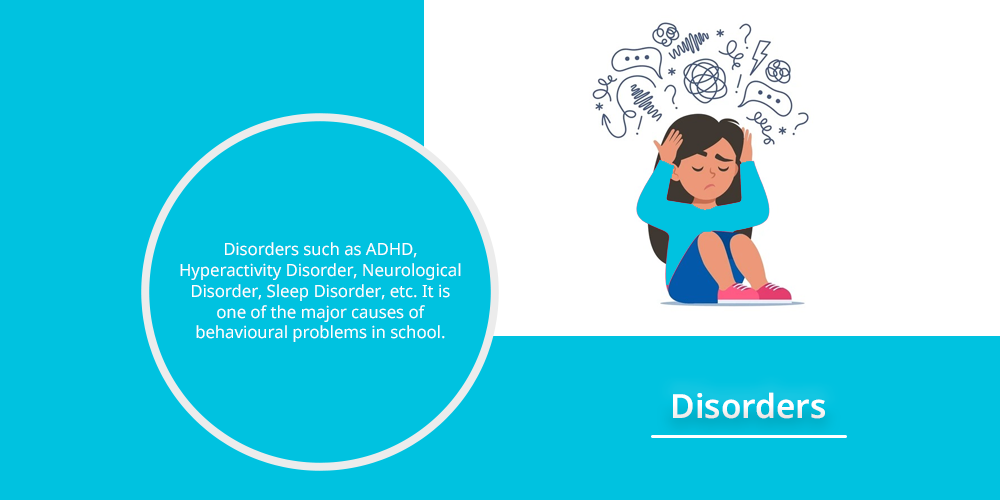
Disorders such as ADHD, Hyperactivity Disorder, Neurological Disorder, Sleep Disorder, etc. It is one of the major causes of behavioural problems in school. This creates problems for students to pay attention for a longer period.
Compared to other children, students with disorders are also more impulsive and find it tough to engage with others.
2. Anxiety:

Anxiety is the major cause of behaviour problems in schools. Children with anxiety feel pressure and are unable to handle any situation.
Due to anxiety, students act oddly and feel overwhelmed, due to social anxiety, children become clingy and fear everything, and want to escape the situation.
Due to this behaviour, teachers find it difficult to handle the classrooms with such students. If your child is in an online school, understand how online school can help children with social anxiety effectively.
3. Depression:

Depression is another major reason that hampers children’s behaviour. Depression in children is caused by family pressure, societal pressure, fear of exams, failure, poor performance, relationships, etc.
Due to depression, it takes a toll on student mental health, and they become negative and aggressive over small issues. It makes it tough for both teachers and students to communicate effectively with each other.
4. Environmental Factors:
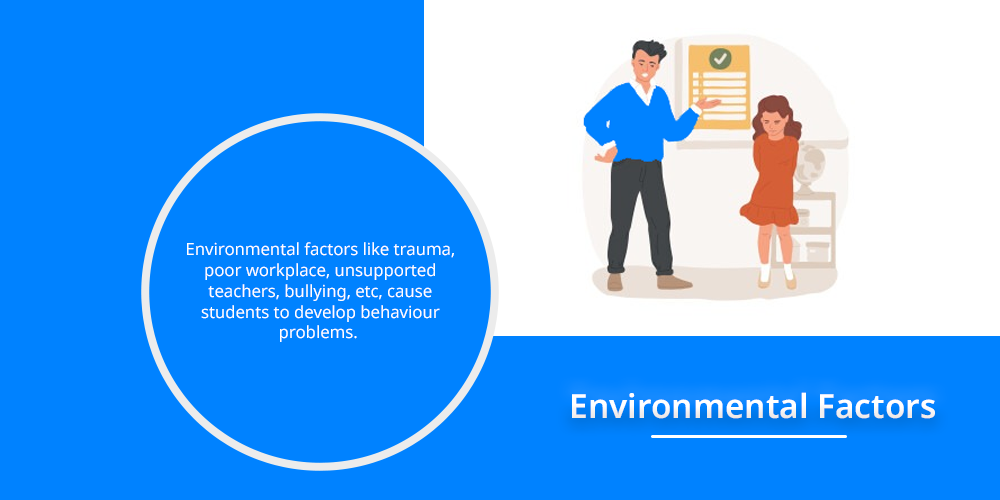
Environmental factors like trauma, poor workplace, unsupported teachers, bullying, etc, cause students to develop behaviour problems.
Due to improper management, students sometimes feel neglected or unfairly treated by their teachers. This makes them poorly concentrate on school and develop anger.
It is essential for teachers to manage classrooms efficiently and develop proper student-teacher relationships to avoid such behaviour.
5. Disabilities:
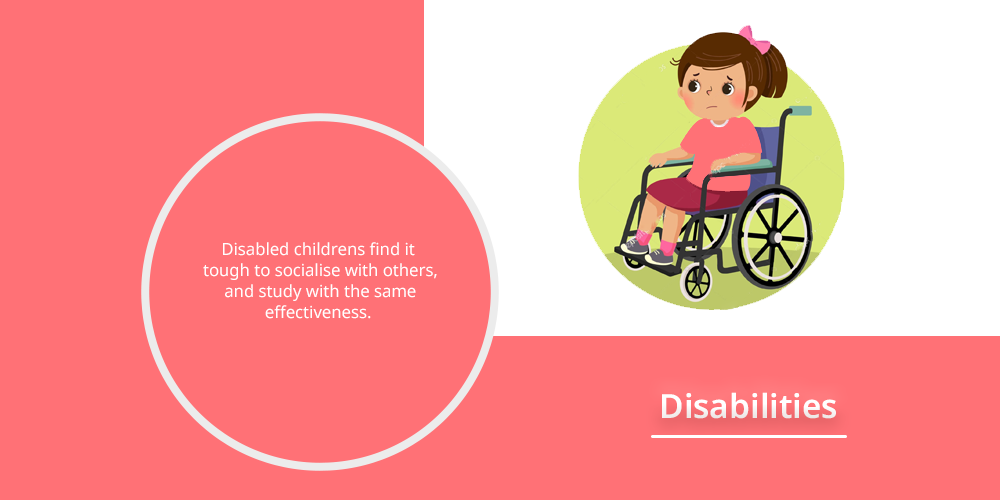
Disabled childrens find it tough to socialise with others, and study with the same effectiveness. Due to disabilities, children are sometimes neglected by teachers and don’t get proper attention, which makes them feel undervalued.
This causes odd behaviors among them. It is essential for teachers to create an inclusive learning environment and provide equal education to every individual.
6. Parental Conflicts:
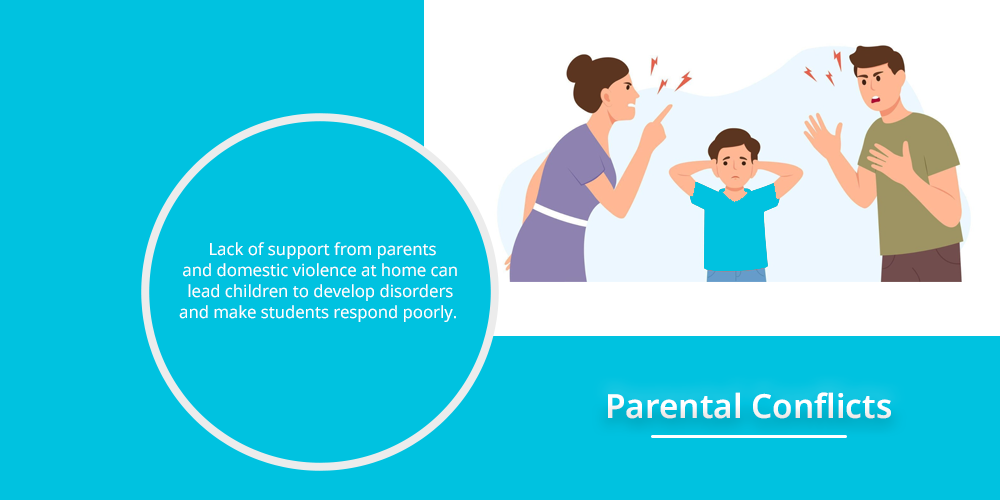
Parental conflicts are one of the main causes of poor behaviour in schools. Lack of support from parents and domestic violence at home can lead children to develop disorders and make students respond poorly.
Due to this children behave oddly in the classrooms and they find difficulty in connecting with others. It is important to focus on indulgent parenting, and create a proper home environment for effective student development.
Ways to Overcome Behavioural Problems in Schools
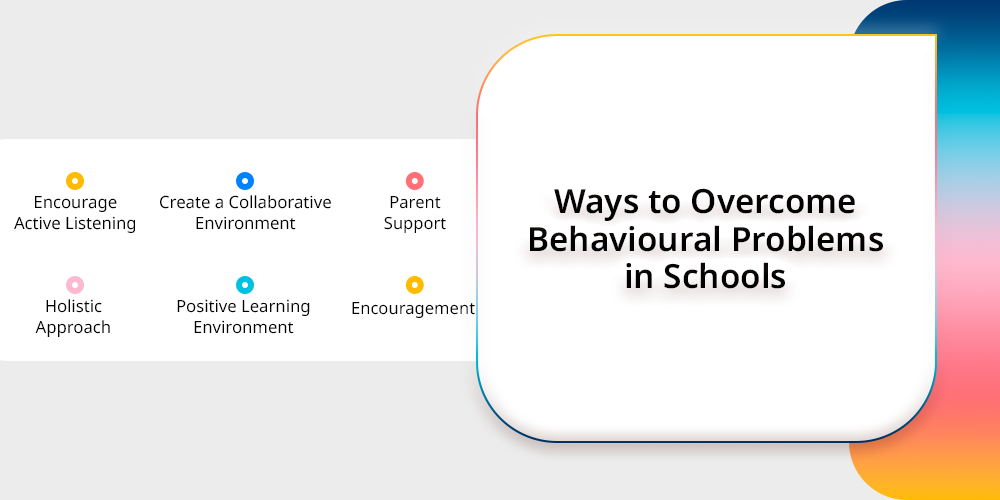
Overcoming these behavioural problems is very necessary for an active journey of education. Students can behave oddly due to various factors.
In such scenarios, it becomes tough for educators to effectively manage the entire class. This problem can be overcome by foreseeing the problems and creating positive solutions.
Finding the root cause and building a collaborative learning environment is an incredible way to overcome behaviour problems in schools. Below, you can check the possible ways to avoid behaviour problems in schools.
1. Encourage Active Listening:
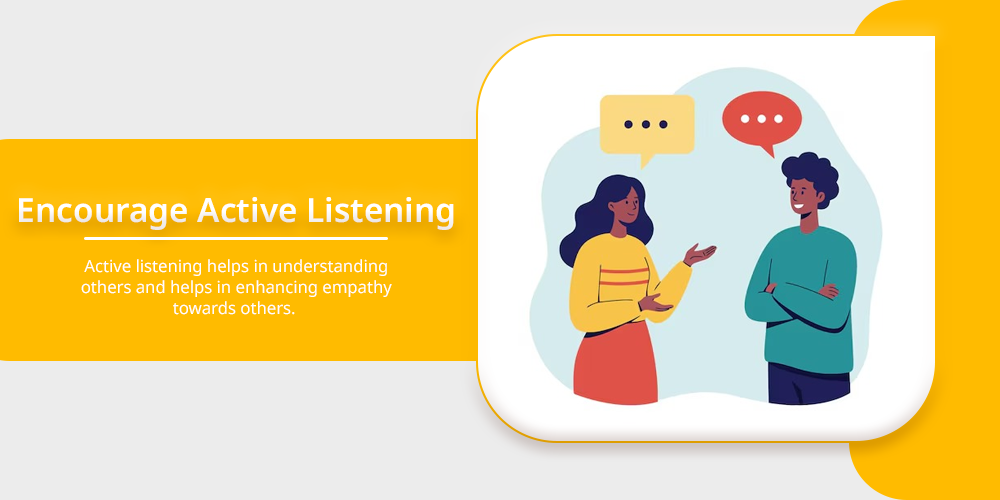
Active listening is one of the effective ways to enhance good behaviours among students. Active listening helps in understanding others and helps in enhancing empathy towards others.
It is also essential for teachers as well to understand the needs and requirements of students. This helps students develop trust and credibility among others.
2. Create a Collaborative Environment:

A collaborative environment helps students to connect with others, builds community and enhances educational equality. Collaboration with others helps in developing social emotional learning and helps in promoting a holistic education.
This helps them to behave in a good way and enhances their behavioural outcomes. Through a collaborative environment students find it easy to communicate with teachers and share their thoughts and feelings.
3. Parent Support:
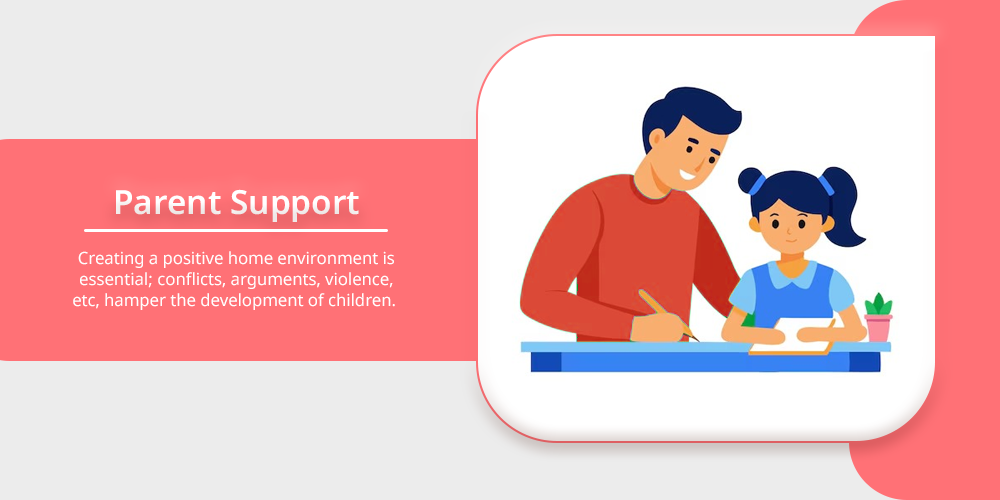
Parent support is essential in enhancing good behaviours of students. Creating a positive home environment is essential; conflicts, arguments, violence, etc, hamper the development of children.
In such a scenario it is essential to build a proper parent child relationship for contributing to the overall learner’s development.
4. Holistic Approach:
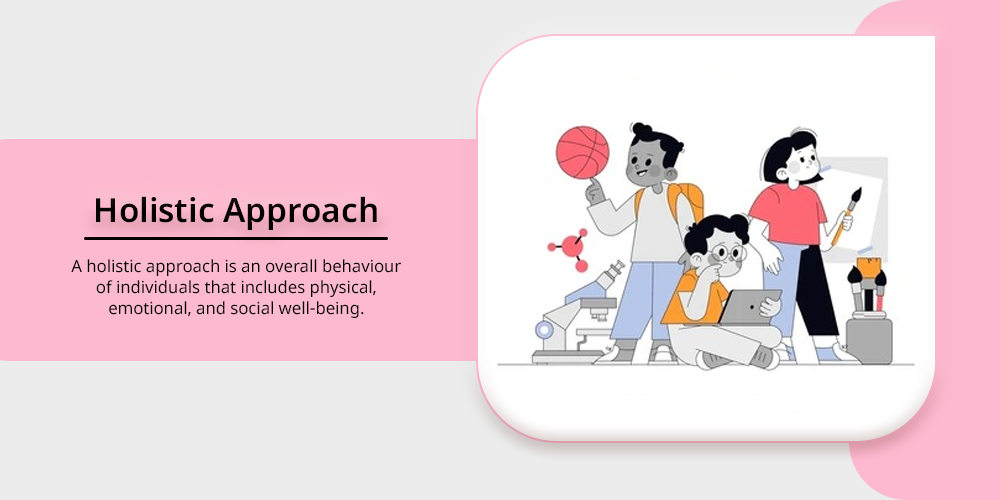
A holistic approach is an overall behaviour of individuals that includes physical, emotional, and social well-being.
Praising positive behaviours helps them avoid their negative aspects and helps in getting attention. This helps in promoting holistic education and allows them to stay motivated.
5. Positive Learning Environment:
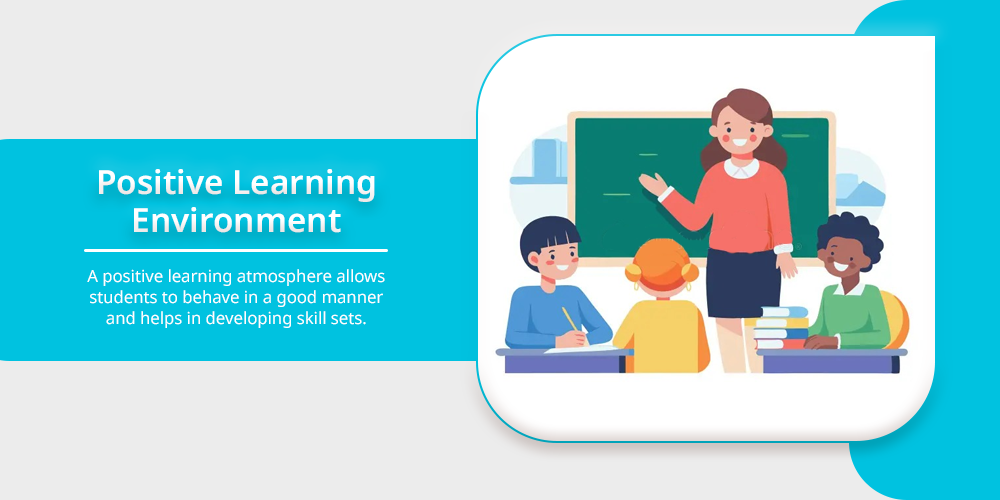
Creating a positive learning environment is essential in eliminating the common behavior problems in schools. It can be empowered by the use of the modern teaching methods for education.
A structured and customised education helps in minimising distractions and enhancing their learning approach. A positive learning atmosphere allows students to behave in a good manner and helps in developing skill sets.
6. Encouragement:
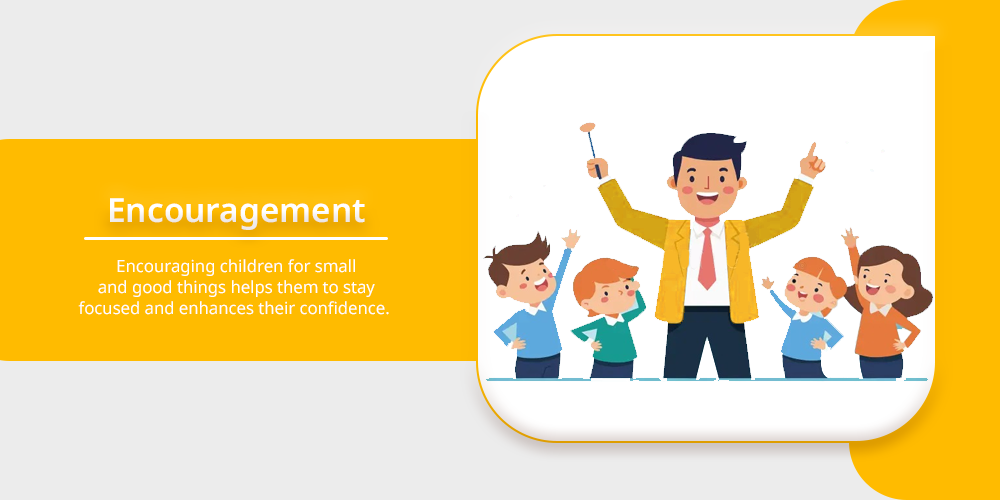
Students’ encouragement is very important for promoting good behaviour in students. Encouraging children for small and good things helps them to stay focused and enhances their confidence.
This helps them to reduce disruptive behaviours and enhance good qualities among students, and promotes lifelong learning.
Final Remarks
Behavioural issues in schools affect the entire learning environment and pose serious difficulties for teachers and students.
Developing effective strategies to address these issues requires an understanding of the various causes, which range from disorders and parental conflicts to emotional and social factors.
Schools may establish an environment that supports learning and individual development by establishing a cooperative and encouraging environment, promoting positive reinforcement and encouraging active listening.
In the end, dealing with behavioural issues promotes students’ emotional and social growth in addition to improving the educational experience, opening the door to a more peaceful and effective school community.
